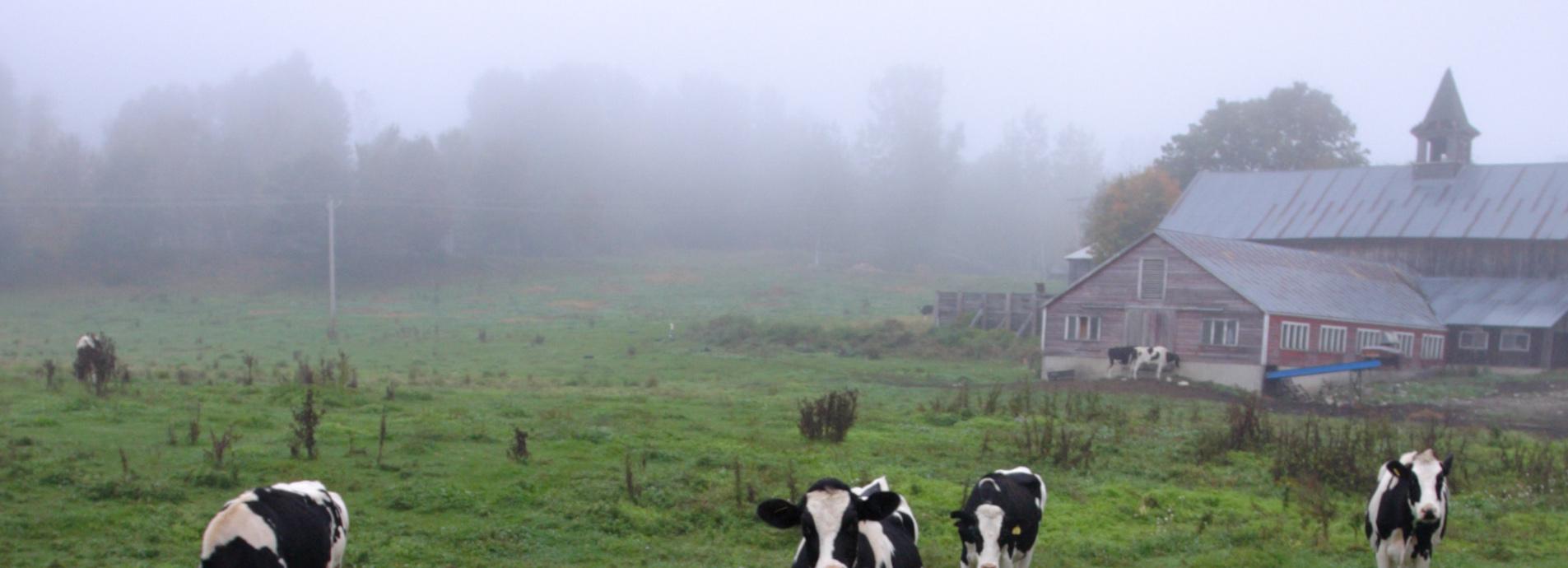May 2, 2025
The Northeast Organic Farming Association of Vermont (NOFA-VT), along with the six other organizations comprising the NOFA Interstate Council (NOFA I.C.) in Connecticut, Massachusetts, New Hampshire, New Jersey, New York, and Rhode Island, joined a broad lawsuit to challenge the Trump administration’s unlawful reorganization of the federal government. The lawsuit was filed on April 28 by a multi-sector coalition that includes nationwide labor organizations, cities and counties, and vital non-profit groups.
The NOFA I.C. supports over 2,500 farmers. Farmers have been raising alarms about cuts to the United States Department of Agriculture (USDA) staff since the executive order was signed in February. At the time of filing the lawsuit, USDA has not publicly shared their Agency Reduction in Force and Reorganization Plan. However, Government Executive, citing sources within the USDA and documents obtained from the White House, reported that the Trump administration is planning to severely scale back or outright eliminate funding for many programs across the Agriculture Department as it slashes workers and closes offices at the local level.
USDA drives a variety of key functions in the food system, from crop research to food safety and access. While the NOFA chapters agree that USDA reform is overdue, sweeping cuts without Congressional oversight or any plan to support the people and systems who rely on these services are not the answer. Gutting the workforce will threaten the function of our entire food system and dissolve the support structure that small farmers do have—and goes against the will of most voters, who want a USDA that backs small farms and resilient, ecologically sound farming. There are mounting concerns about the type of agricultural system USDA is currently prioritizing, which puts independent farms at risk, raises consumer prices, increases corporate consolidation, and makes the supply chain more vulnerable to disruptions.
“Farming is a trickle-up system; the more success the small farms have, the more farmland they can manage, the more food they can produce, the more people they can employ, the more people they can feed. If we want to continue to have small farms and see new ones start up, we need to understand how important these programs are to their existence,” says Meadow Squier, a livestock, vegetable, and maple farmer in Tinmouth, Vermont.
Farmers are especially worried about growing dysfunction at the Farm Service Agency (FSA) and the Natural Resources Conservation Service (NRCS). These agencies already struggle to meet demand. With fewer staff, wait times will grow, credit will be harder to access, and emergency response will suffer. These disruptions could take years to repair, especially for independent, beginning, and BIPOC farmers who rely most on FSA and NRCS services and will likely be unable to re-enter the industry if their farms can’t weather the sudden disruption.
“Our organic farm relies on NRCS support not just for funding, but for guidance, planning, and long-term resilience,” says Kristen Tyler, a livestock and vegetable farmer in Westford, Vermont. “Our conservation planner was let go this spring. The loss of these dedicated staff members has left us and others without the technical support needed to implement conservation practices critical to soil health and climate adaptation.”
The NOFA I.C. believes USDA programs must be more effective and equitable. But slashing public services doesn't erase farmers’ needs, it just hands power to private companies that charge more, deliver less, and aren’t accountable to the public. Farmers need a government that is responsive, transparent, and built to serve rural communities.
This is the largest and most significant challenge to Trump’s authority to remake the government without Congressional approval. The case seeks a court’s intervention to stop the implementation of the President’s unlawful Executive Order 14210 (Implementing the President’s ‘‘Department of Government Efficiency’’ Workforce Optimization Initiative), which violates the Constitution’s fundamental separation of powers principles. Although the President’s Executive Order seeks to radically reorganize and deconstruct federal agencies through massive reductions in force, the groups make clear in the filing that only Congress has the power to change the federal government in the ways the President has directed.
The coalition on the lawsuit includes the American Federation of Government Employees (AFGE) and four AFGE locals; American Federation of State County and Municipal Employees (AFSCME); Service Employees International Union (SEIU) and SEIU Local 1000; Alliance for Retired Americans, American Geophysical Union; American Public Health Association; Center for Taxpayer Rights; Coalition to Protect America’s National Parks; Common Defense; Main Street Alliance; NRDC (Natural Resources Defense Council); Northeast Organic Farming Association Inc.; VoteVets; Western Watersheds Project; City and County of San Francisco, California; County of Santa Clara, California; City of Chicago, Illinois; City of Baltimore, Maryland; Harris County, Texas; and King County, Washington. The case, AFGE v. Trump, was filed in the United States District Court for the Northern District of California. The coalition is represented by Democracy Forward, Altshuler Berzon LLP, Protect Democracy, the Public Rights Project, and State Democracy Defenders Fund.
####
About the Northeast Organic Farming Association Interstate Council
The Northeast Organic Farming Association Interstate Council (NOFA I.C.) is the organizing body for the seven state NOFA Chapters: NOFA-VT, NOFA-NH, NOFA/Mass, NOFA-RI, CT-NOFA, NOFA-NJ, and NOFA-NY. Together, the NOFA organizations are dedicated to a vision of interconnected healthy communities living in ecological balance, deeply rooted in a sense of place and grounded in organic care of the land. The first NOFA organization was founded in Putney, VT, in 1971, making it one of the oldest organic farming associations in the United States. Learn more at nofa.org.

